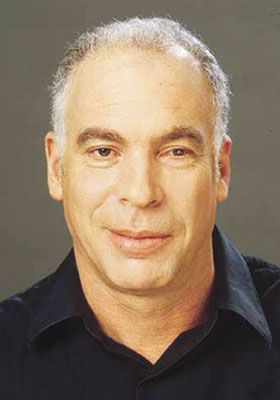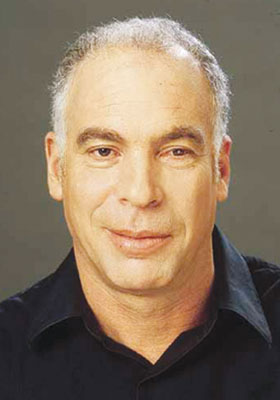Uri Ariel
(1952 - )

 |
Uri Yehuda Ariel (Hebrew: אורי אריאל) was born on December 22, 1952, in Afula to his father Yitzhak, one of the founders of Tirat Zvi, and his mother Naomi, a Holocaust survivor who joined the kibbutz. He attended the regional school of the kibbutzim at Sde Eliyahu.
In 1971, Ariel enlisted in the Israel Defense Forces and served in a reconnaissance unit. In the 1973 War, he fought on the Egyptian front in the northern Sinai. During his military service, he met his wife Hagit, a member of Kibbutz Maagan-Michael.
In 1975, after being discharged from the IDF as a major, Ariel joined Garin Mishor Adumim. In 1977 he married Hagit, and together they founded a new town, Kfar Adumim, which features a community life that includes both religious and secular Jews.
Between 1989 and 1999, Ariel filled a range of positions related to the settlement enterprise: Secretary General of Amana – the Settlers’ Movement, Secretary General of the Yesha Council, Head of the Settlement Department in the Ministry of Defense and Head of the Beit El Council.
For the 1999 elections, he was placed seventh on the National Union list. Although he missed out when the party won only four seats, Ariel entered the Knesset in as a replacement for the assassinated Rehavam Ze’evi. He then won a seat in the 2003 election and was reelected in 2006, 2009 and 2015.
Ariel has filled a series of positions: member of the Foreign Affairs and Defense Committee, Finance Committee, Internal Affairs Committee, State Control Committee, Education, Culture and Sports Committee; Chairman of the Defense Budget Committee and Subcommittee for the Gush Katif and Northern Samaria Evacuees; member of the Committee for the Appointment of Judges.
Ariel also chaired the Lobby for Gush Katif Evacuees, the Lobby for Jerusalem and the Lobby for the Release of Jonathan Pollard. He is also member of the Lobby for Eretz Israel.
During the disengagement from Gush Katif, Ariel relocated to Kfar Darom, to identify with the residents. He also moved temporarily to the Amona outpost after the Supreme Court ordered the demolition of the homes in what was deemed an illegal settlement.
After Jewish settlers attacked an Israeli army base in 2011, Ariel objected to them being labeled terrorists and condemned calls for the use of lethal force to repel such attacks in the future. In 2012, Ariel admitted to giving IDF troop movement information to radical settlers to help them disrupt army operations. “If a person who transfers information about IDF movements is a spy,” he said, “then I am a spy.”
In the Knesset, Ariel worked for agriculture in Israel, for the monthly Sivuv Shearim (“encircling of the gates”) event on the Temple Mount, for Yesha towns and for various forms of religious education. He successfully recruited the majority of the parties in the Knesset to support the Jewish National Fund Law he initiated to keep national lands in Jewish hands.
During the elections for the 19th Knesset, Ariel ran with the National Union on a joint list with the Jewish Home, and placed second on the list. With the formation of the 33rd government headed by Benjamin Netanyahu, Ariel was appointed Minister of Construction.
Following the elections for the 20th Knesset, Ariel was appointed Minister of Agriculture and Rural Development in the 34th government headed by Benjamin Netanyahu.
In 2018, he lost the election to head the party to Bezalel Smotrich and was not placed in the top seven on the Union of Right-Wing Parties list for the 2019 election.
Ariel is married with 6 children.
Sources: “Uri Ariel,” Wikipedia;
Haaretz;
Jerusalem Post;
The Knesset


